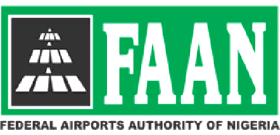 Nigeria’s Airports Adopt Cashless Payment System, Promising Modernisation and Revenue Growth
Nigeria’s Airports Adopt Cashless Payment System, Promising Modernisation and Revenue Growth
In a move that signals a major transformation for Nigeria’s aviation sector, the Federal Airports Authority of Nigeria (FAAN) has launched a cashless and contactless payment system, beginning with the high-traffic Murtala Muhammed International Airport (MMIA) in Lagos and the Nnamdi Azikiwe International Airport in Abuja. This initiative is poised to reshape how payments are processed in Nigerian airports and is expected to serve as a model for the evolution of airport services across the African continent.
Announced at a press event in Lagos, the new system is designed to eliminate cash handling at all entry points, including car parks, access gates, and VIP lounges. The goal is to introduce a system that is not only technologically advanced but also transparent and efficient—addressing longstanding concerns about opaque revenue management in the country’s airports, especially concerning non-aeronautical revenue streams.
FAAN’s Managing Director, Olubunmi Kuku, highlighted the projected impact of this digital overhaul, stating that the authority expects a 50% increase in revenue at the pilot stage, with projections rising to 75% as the system is rolled out nationwide. This strategic deployment of digital payment technology marks a significant shift toward accountability and efficiency, which could potentially triple FAAN’s annual revenue after full implementation. For African aviation stakeholders, this represents a clear demonstration of how digitalisation can unlock new streams of income and streamline operations.
Historically, FAAN has faced criticism over its approach to revenue collection, particularly with non-aeronautical income sources such as toll gates and parking. In 2024, Nigeria’s airports collectively generated over N382 billion, with Lagos alone accounting for a dominant 67% and Abuja following at 21.3%. The introduction of automation is expected to push these figures beyond N500 billion, a testament to the transformative power of technology in airport management.
Kuku emphasised that the authority’s brand ambassadors would be stationed at all access gates to guide customers through the transition, ensuring that the move to a cashless system is as smooth as possible. This customer-first approach aims to address the demands for a more modern experience and supports Nigeria’s broader ambitions for national economic development.
With every transaction now set to be electronic, traceable, and secure, the new system directly addresses issues of accountability. The FAAN MD was clear: “By significantly reducing our reliance on physical cash, we are building a system that is inherently more transparent. Every Naira due to the Authority is duly collected and accounted for.” This aligns with international best practices and positions Nigeria’s airports as competitive players on the global stage, signaling to the world that the country is open for business with infrastructure that meets international standards.
At the heart of this new system is a contactless card, available at all airport access points in Lagos and Abuja, which users are encouraged to activate and fund immediately. The card serves as the main gateway for payments, removing the need for physical cash and reducing the risk of theft. FAAN is committed to a phased expansion, aiming for a complete phase-out of cash transactions by the first quarter of 2026. This transition plan is underpinned by four strategic pillars: enhancing operational efficiency, reducing congestion and delays, improving revenue collection and accountability, and aligning with global standards for seamless airport access and service delivery.
Beyond the immediate revenue benefits, the cashless policy offers broader advantages for airport users and business partners. Passengers will benefit from faster transactions and a smoother experience, while businesses operating within the airport ecosystem can expect lower transaction costs and reliable internet connectivity to support these new processes. FAAN’s Director of Commercial and Business Development, Adebola Agunbiade, stressed that the policy would extend financial services to those with limited access to traditional banking, promoting greater financial inclusion across Nigeria and potentially inspiring similar initiatives in other African countries.
An extensive awareness campaign is already underway to ensure broad adoption. FAAN is leveraging stakeholder forums, billboards, social media, radio jingles, and on-site posters to educate both customers and partners about the benefits and mechanics of the new system. The initiative is not limited to access gates; future phases will encompass casual flights, VIP lounges, car hire operations, and more, further embedding digital payments into every aspect of airport operations.
Operational data underlines the initiative’s potential scale: Lagos and Abuja’s access gates handle over 300,000 vehicles each month, while their VIP and Protocol lounges serve thousands of high-value customers annually. Enhanced convenience and transparency in these high-traffic areas are expected to deliver a measurable impact on customer satisfaction and operational efficiency.
The roll-out of the cashless system has garnered support among aviation experts, who view it as a long-overdue step in modernising airport infrastructure and management. Olumide Ohunayo, General Secretary of the Aviation Roundtable, praised the move as a natural progression toward improved service delivery. He noted that the shift from manual cash collection to digital systems would free up staff for more strategic roles, contributing to increased productivity and more effective revenue generation.
However, experts and passengers alike have raised concerns about the potential for network disruptions, which could lead to delays and congestion at critical points like access gates. Questions also remain about the integration of legacy systems and the accuracy of passenger traffic and revenue data. Group Captain John Ojikutu, a respected aviation analyst, stressed the need for accurate data reconciliation and seamless system integration to ensure the initiative’s success.
Despite these challenges, the implementation of a cashless and contactless payment system at Nigeria’s busiest airports represents a bold step toward future-proofing African airport infrastructure. As the system expands to cover all airports operated by FAAN, it is expected to serve as a benchmark for other countries in the region seeking to modernise their own aviation sectors.
For the broader African travel industry, this development is not just about improving financial transparency or boosting revenue. It signals a wider shift toward digital transformation, customer-centric service delivery, and global competitiveness. The coming years will likely see other African nations following suit, leveraging technology to enhance airport operations, drive financial inclusion, and position themselves as attractive destinations for international business and tourism.
In sum, FAAN’s bold step into cashless airport management stands as a strong example of how innovation, when thoughtfully planned and executed, can unlock new potential for Africa’s evolving travel landscape. As implementation continues and lessons are learned, the region’s travel professionals should closely watch Nigeria’s progress for insights and inspiration on shaping the airport experience of the future.
